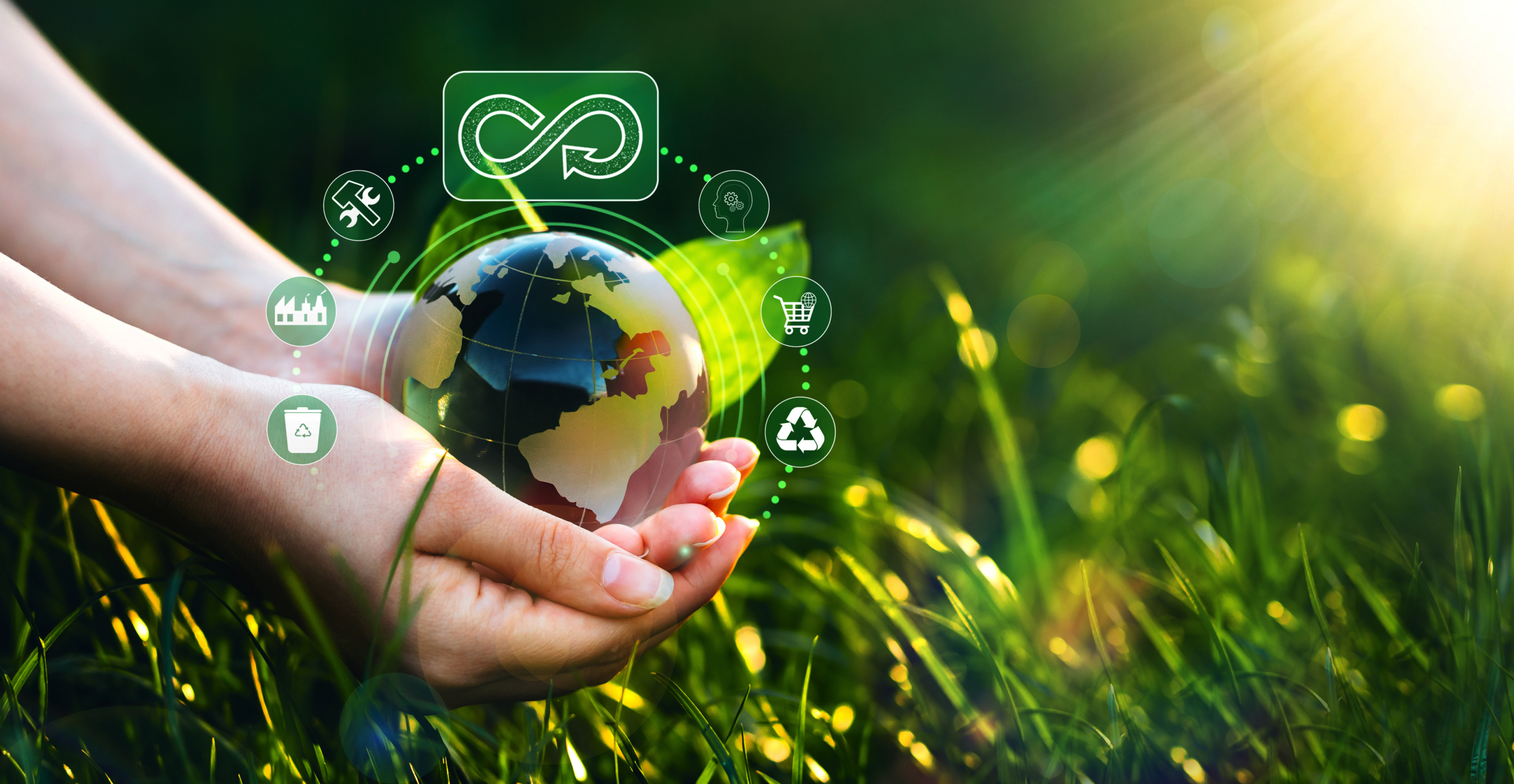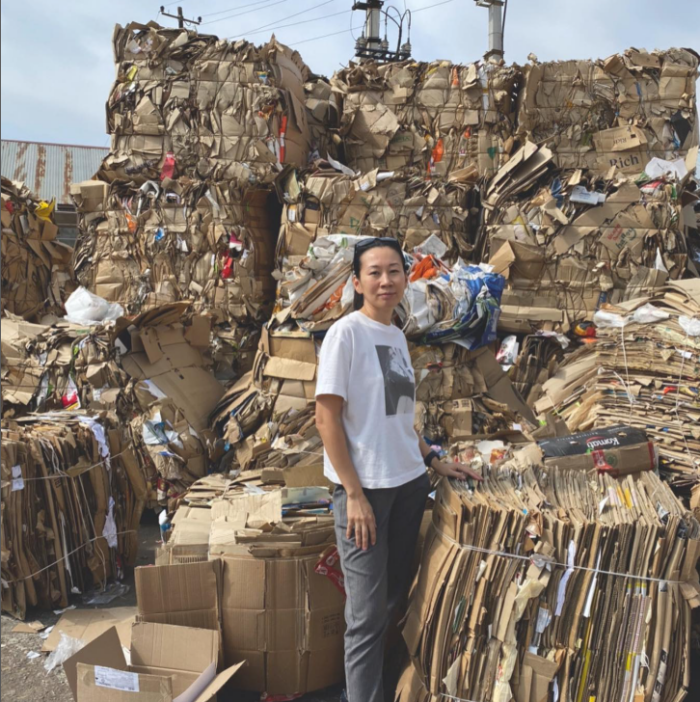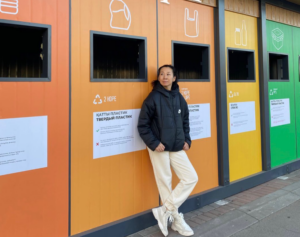ASTANA – Developing environmentally friendly habits and respect for nature should start at an early age, says Kamila Akimbekova, a Kazakh eco-blogger, influencer, and organizer of sustainable events.

Photo credit: bernardmarr.com
In an interview with The Astana Times, Akimbekova shared her journey into environmental activism, her passion for the Darmarka project, and her thoughts on whether people are ready to embrace an eco-conscious lifestyle.
From personal practice to public advocacy
“I can’t say exactly when my journey toward conscious consumption began, it feels like it’s always been part of me. My parents raised me to be responsible – turn off the lights, save water, never litter, and respect others. These were just ordinary family values,” she said.

Kamila Akimbekova, a Kazakh eco-blogger, influencer, and organizer of sustainable events in Kazakhstan. Photo credit: Akimbekova’s Instagram page
Growing up in the Soviet Union, Akimbekova recalled how waste was minimal.
“We returned bottles and collected paper. We lived in an era of scarcity but breathed clean air. Overconsumption came later, and with it, our values shifted. It was only after becoming a parent that I realized I needed to pass on the right values to my children,” noted Akimbekova.
She began by sorting her waste and bringing reusable bags to stores, but quickly realized personal action alone was not enough and that she needed to talk about it and get others involved.
The rise of social media helped. When Instagram began gaining popularity about 10 years ago, Akimbekova started her page and studied environmental practices at an eco-school. There, she was encouraged to share her knowledge online.
“It started small, just posts here and there. But now, my Instagram is an active platform where I share content about sustainability and host discussions. People are genuinely curious, and that inspires me to keep going,” she said.
Maximum impact, zero profit
One of Akimbekova’s key initiatives is Darmarka—a project launched in Almaty in 2017 that allows people to donate and exchange used items for free. The name combines the Russian words “to give” and “fair.”
“In 2018, I first came as a visitor and brought clothes. Later I became a volunteer and eventually helped organize the events. In 2019, I was the only team member managing Darmarka in Almaty,” she said.
The concept is simple: bring what you do not need, take what you do, and help others in the process. Unsold items are donated to charitable foundations and delivered to rural areas.
According to Akimbekova, the project’s success lies in its social mission to challenge overconsumption and promote conscious living.

Alongside clothing, the Darmarka project also collects recyclables — including hard and soft plastics, waste paper, glass, aluminum, used electronics, expired medicines, and even vegetable oil. Akimbekova’s Instagram page
“People clean out their closets and often realize they have been holding onto things they never wear. Some even bring brand-new items with tags still on. It encourages people to rethink their consumption habits and leads many to adopt a more mindful, sustainable lifestyle,” she said.
The project has grown dramatically. “We started with just one clothing rack. Now we sometimes have five. At first, we’d donate a few bags of leftover items to charities. Now we collect enough to fill a whole van with donations,” she added.
Akimbekova noted that interest in the project has grown beyond Almaty, as people from other cities and countries have reached out asking how to start similar fairs. However, despite its growing popularity, the project remains a fully volunteer-run and non-commercial initiative.
Recycling has also entered the equation. Darmarka now accepts a wide range of materials, including paper, plastic, glass, tin, aluminum, electronics, expired medicine, vegetable oil, and even mercury-containing items.
Is Kazakhstan ready for eco-living?
Akimbekova also urges people to pay attention to the environmental cost of the fashion industry.
“Few people realize how much pollution comes from clothing production—not just from waste, but from manufacturing processes, the use of toxic dyes, and the energy consumed,” she said.
Thanks to the opening of a textile recycling plant, supported by private investors, people in Almaty now have a place to dispose of fabric waste properly. However, such projects are rare and expensive.
“This is where government support becomes critical. Eco-initiatives like these need subsidies. The return on investment is not high, but the social impact is,” said Akimbekova.
Despite appearances, she believes the Kazakh public is increasingly ready for an eco-friendly lifestyle.
“Sure, the number of people sorting waste may seem small. But when you’re immersed in it, you see how fast interest is growing. People tell me all the time, ‘Thanks to you, I started sorting waste.’ That kind of feedback shows we are moving in the right direction,” she said.
To truly embed eco-consciousness into society, Akimbekova highlighted the need for both government and private sector leadership.
“We need public support, environmental education in schools, better infrastructure, and thoughtful collaboration from businesses. Too often, we see well-intentioned actions — like organizing a clean-up in the mountains — only to have the collected waste transported to landfills without proper sorting, followed by a picnic with 100 people and heaps of single-use items. It misses the point,” said Akimbekova.
In her view, real change comes from understanding the issues deeply and from consulting with experts and activists before launching eco-campaigns.
“Habits take root in childhood, but they flourish when supported by systems that make conscious living easier. What truly matters is giving these issues the attention they deserve, building the right infrastructure, and most importantly, teaching people how to sort waste correctly,” she said.
